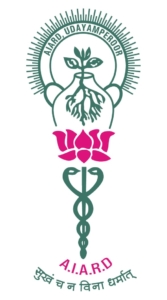Ambujam Foundation for Ayurvedic renaissance registered as No.144/6/2015 of sub registry, Thripunithura is a public charitable trust specially designed for Ayurvedic doctors, medicinal plant farming and all aspects of classical Ayurveda for education and preservation. Our managing trustee Prof. Dr. Dileepkumar P P, along with 4 other trustees within advisory board are the main partners to achieve the mission (E-mail: ambujamfoundation@gmail.com)
1) Revival of Sanskrit language for the benefit of Ayurveda:
a. Sanskrit texts on darshana and vyakarana are selected for discussing rationalities and reasoning on practical applications of words (linguistics) in Ayurvedic perspectives. Many expert scholars of Sanskrit and Ayurveda from all over India are participating in the program for documenting evidence based data as per classical Ayurvedic wisdom.
b. A detailed compilation on nighantus and samhitas are being done for better clarity and definitions on controversies.
2) Medicinal plant cultivation:
Farmers who are into organic cultivation from all over India are selected and engaged in cultivation of medicinal plants as cash crops or intercrops after enlisting successful species with one month trial farming. Soil test, MoU, irrigation, basic requirements and post harvest managements up to value adding systems have been emphasized. These projects are enabled with the support of CSR activities and financial support from the government. We provide free saplings and do periodical visits and guidance to monitor progress in cultivation.
3) Grading of Ayurvedic colleges in India:
A complete and truthful survey on Ayurvedic colleges all over India has been done with appreciation of distinction according to the facility and public acceptance.
4) Training of school children:
The ancient Indian system of developing morality and disciplines among children dealt in Sanskrit literatures are being used through presentations by Sanskrit scholars in schools and colleges. Many such texts in Sanskrit are utilized to trainers for the presentations ( Eg: Panchathanthram, Neethisathakam, Arthasasthram etc.).
5) Conservation programs:
a. Critically medicinal, endangering, environmentally important, regionally important trees are specially enlisted for conservation projects in selected areas of India.
b. Trees for sustainable harvesting and the trees that are preventing natural calamities are also selected for the conservation project.
6) CME of doctors:
Qualified Ayurvedic practitioners who are into classical Ayurvedic practices are selected for practical training programs to make them competent through integrated approach.
7) Developing school of Ayurveda through Thadvidya sambhasha:
Academicians and researchers in Ayurveda are participating in the program for finding out solutions in controversies under all aspects of Ayurvedic practices.
8) Media developments:
Documentaries, video clips, audio clips and movies are intended to propagate true spirit of classical Ayurveda in simple versions for public acceptance. This is to avoid confusions, p
